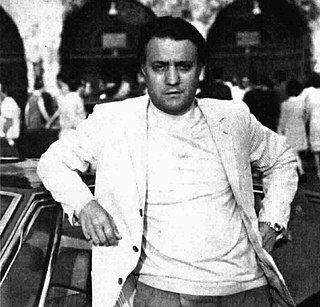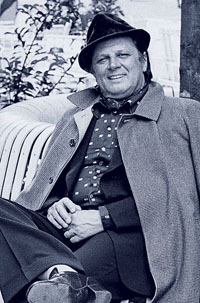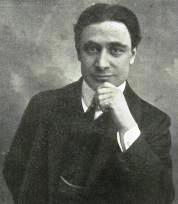Enzo Mascherini (6 August 1910, Florence - 29 July 1981, Livorno) was an Italian operatic baritone, one of the leading baritones of his generation.
He studied in Florence with Titta Ruffo and Riccardo Stracciari and made his debut there in 1937, as Giorgio Germont in La traviata , and also sang at the premiere of Gian Francesco Malipiero's Antonio e Cleopatra, in 1938. He made his debut at the San Carlo in Naples, in 1939, and at the Teatro alla Scala in Milan, in 1940. He appeared in two legendary performances opposite Maria Callas, the first at the Maggio Musicale Fiorentino in 1951, as Montforte in I vespri siciliani , under Erich Kleiber, and on opening night of the 1952-53 season at La Scala, as Macbeth , under Victor de Sabata. He also appeared there in La bohème (with Giuseppe di Stefano, 1952), La favorite (1953), Faust (with Dame Elisabeth Schwarzkopf, 1954), Don Carlos (with Callas, 1954), and, again, La bohème (conducted by Leonard Bernstein, 1955).
After the war, he began an international career, appearing in Paris, Vienna, Prague, London, Mexico City, Rio de Janeiro, Chicago, San Francisco, etc. In 1946 and 1947, Mascherini appeared at the New York City Opera, in La bohème (as Marcello), La traviata (with Dorothy Kirsten), Pagliacci (as Silvio, later as Tonio), Rigoletto, Andrea Chénier (opposite Vivian della Chiesa, directed by Theodore Komisarjevsky), and Il barbiere di Siviglia (with Luigi Infantino and Virginia MacWatters).
He made his debut at the Metropolitan Opera on 7 December 1949 as Marcello in Giacomo Puccini's La bohème with Bidu Sayão as Mimì, Ferruccio Tagliavini as Rodolfo, Lois Hunt as Musetta, and Giuseppe Antonicelli conducting. He performed in several other roles at the Met during the 1949-1950 season, including Germont in La traviata (with Licia Albanese as Violetta and Jan Peerce as Alfredo), Lescaut in Manon Lescaut (with Richard Tucker as Des Grieux), Valentin in Faust (with di Stefano in the title role), and the title role in Rigoletto (with Erna Berger as Gilda). [1] He also went on tour to South Africa in 1951.
A fine singing-actor with a powerful voice and solid technique, he taught in Florence after retiring from the stage. Among his pupils was the Swiss bass-baritone Alexander Malta.
He can be heard on disc in Dom Sébastien , opposite Fedora Barbieri; La favorite , opposite Giulietta Simionato; Tosca , opposite Renata Tebaldi; and the aforementioned "live" I vespri siciliani and Macbeth with Callas. In 1949, the baritone participated in a cinematic version of Il trovatore (available from the Bel Canto Society).

Giuseppe Di Stefano was an Italian operatic tenor who sang professionally from the mid-1940s until the early 1990s. Called Pippo by both fans and friends, he was known as the "Golden voice" or "The most beautiful voice", as the true successor of Beniamino Gigli. Luciano Pavarotti said he modeled himself after Di Stefano. In an interview Pavarotti said "Di Stefano is my idol. There is a solar voice...It was the most incredible, open voice you could hear. The musicality of Di Stefano is as natural and beautiful as the voice is phenomenal". Di Stefano was also the tenor who most inspired José Carreras. He died on 3 March 2008 as a result of injuries from an attack by unknown assailants.

Piero Cappuccilli was an Italian operatic baritone. Best known for his interpretations of Verdi roles, he was widely regarded as one of the finest Italian baritones of the second half of the 20th century. He was enormously admired within the field of opera for his rich and abundant voice, fine vocal technique and exceptional breath control. In the great Italian tradition he fused words and music into elegant phrases. He focused on Italian repertory, particularly the operas of Verdi, singing 17 major roles.

Ettore Bastianini was an Italian operatic baritone who was particularly associated with the operas of the bel canto tradition.

Giuseppe Taddei was an Italian baritone, who, during his career, performed multiple operas composed by numerous composers.

Rolando Panerai was an Italian baritone, particularly associated with the Italian repertoire. He performed at La Scala in Milan, often alongside Maria Callas and Giuseppe Di Stefano. He was known for musical understanding, excellent diction and versatile acting in both drama and comic opera. Among his signature roles were Ford in Verdi's Falstaff and the title role of Puccini's Gianni Schicchi.

Giuseppe Valdengo was an Italian operatic baritone. Opera News said that, "Although his timbre lacked the innate beauty of some of his baritone contemporaries, Valdengo's performances were invariably satisfying — bold and assured in attack but scrupulously musical."

Gianni Raimondi was an Italian lyric tenor, particularly associated with the Italian repertory.
Mario Filippeschi was an Italian tenor, particularly associated with the Italian repertory, renowned for his ringing upper register.

Gianni Poggi was an Italian tenor, particularly associated with the Italian repertory.
Luigi Infantino was an Italian operatic tenor, particularly associated with the lyric Italian and French repertories.

Scipio Colombo was an Italian dramatic baritone, and was known for his abilities as a musician and singing-actor.

Anthony Michaels-Moore is an English operatic baritone and the first British winner of the Luciano Pavarotti International Voice Competition. Michaels-Moore has since performed in many of the world's major opera houses across Europe, the Americas, and Asia. He has distinguished himself as a specialist in Verdi and Puccini roles, most renowned for his portrayals of Falstaff, Nabucco, Rigoletto, Simon Boccanegra, Iago in Otello, Germont in La traviata, Sharpless in Madama Butterfly, and Scarpia in Tosca. In addition to the standard repertoire, he has sung and recorded the baritone roles of some of the less-known 19th Century Italian operas, as well as the popular English art song cycles by Stanford and Vaughan Williams.
Armando Agnini was a successful Italian stage director of opera.
Enzo Sordello was an Italian operatic baritone.
Željko Lučić, is a Serbian operatic baritone who has had an active international career since 1993. He was a member of the Serbian National Theatre in Novi Sad from 1993 to 1998 and at the Frankfurt Opera from 1998 to 2008. He is particularly well known for his performances in the operas of Giuseppe Verdi; having portrayed a total of 23 leading roles from the great composer's works.

Giovanni Polese was an Italian operatic baritone who had an active international singing career from 1894-1928. He achieved the height of his success in the United States in the years 1908-1916 in the cities of Boston, Chicago, New York, and Philadelphia, and again from 1926-1928 in Chicago. While he sang a broad repertoire from the French, German, and Italian repertoires, he was most celebrated for his performances in the operas of Giuseppe Verdi. His voice is preserved on more than 20 recordings made by Edison Records.
Arthur Cosenza was an American impresario, stage director, and baritone of Italian heritage, who was particularly associated with the New Orleans Opera Association.

Giovanni Meoni is an Italian operatic baritone.
Giórgios Kokoliós-Bardi (1916-1964) was a Greek tenor who often appeared with the Greek National Opera, as well as with international theatres.
Silvano Carroli was an Italian baritone.